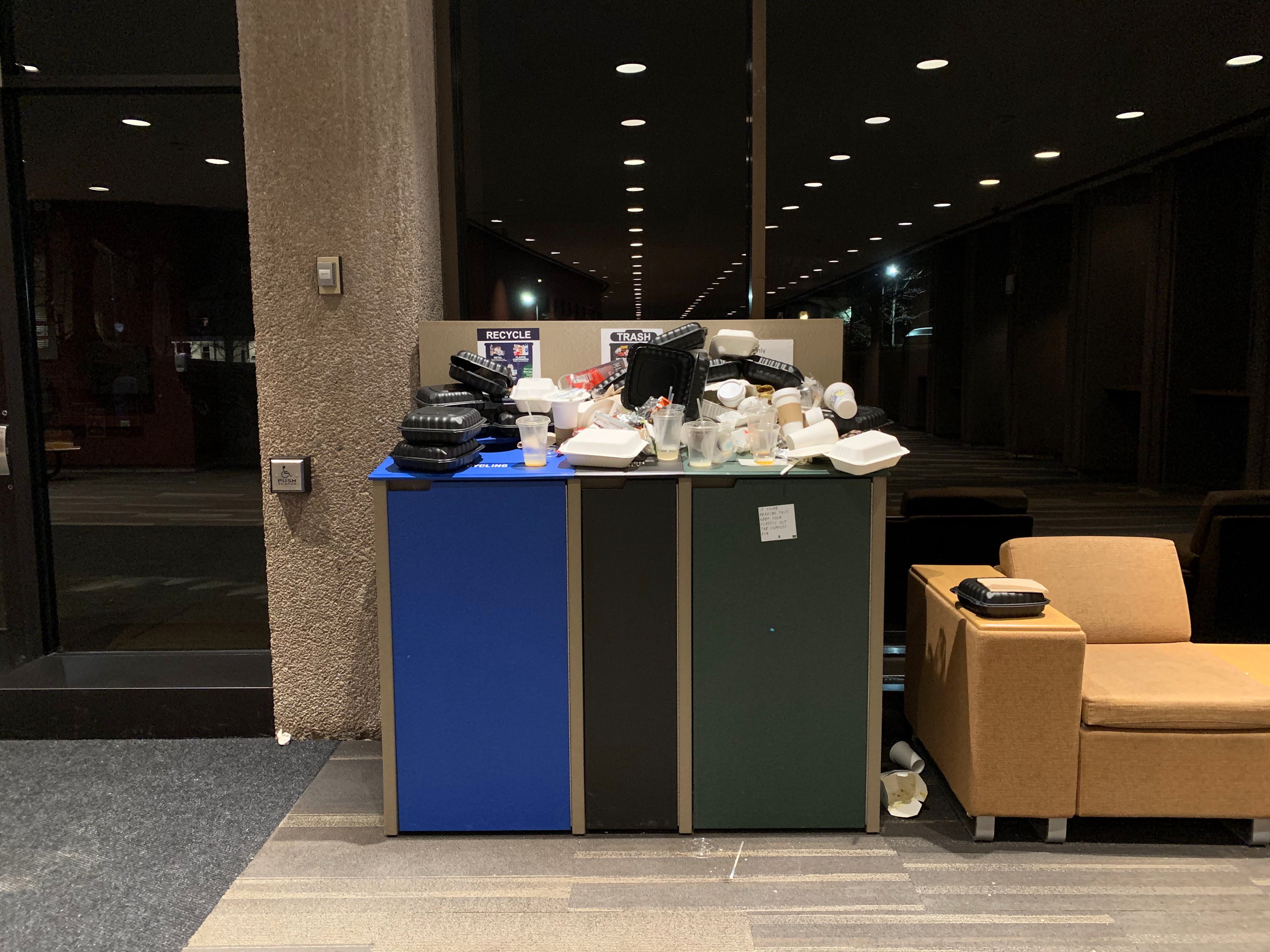
c/o Aiden Malanaphy, Assistant Photo Editor
The University’s campus has been crowded during the 2021-22 academic year, and perhaps no group has been more aware of this than the Facilities Department. The class of 2025 is the second-largest first-year class in University history, and there are currently 96 more students living in University-owned buildings than there were before the COVID-19 pandemic, marking a 3% increase.
Of these 96 students, Facilities Business Manager Jeff Murphy stated that 71 additional students live in Bennett Hall; nine live at 216 College St., a house the University purchased and renovated in the fall, and the remainder live in other University-owned housing. About 125 students lived at the Inn at Middletown in the fall, but, due to the increased number of students studying abroad this semester, the University has resumed its use as a quarantine-only space.
One way that the University’s Facilities Department has needed to adapt to the higher student population is by increasing its staffing at the Usdan University Center, partially to manage the abundant trash resulting from disposable dishes and cutlery.
“We added one additional custodian, for 40 hours per week, to support outdoor dining at the Usdan/Huss Courtyard area,” Murphy wrote in an email to The Argus. “This addition was suggested by [Service Management Group (SMG)] custodial staff, once the [fall] semester got underway, and has really helped us keep up with the increased foot traffic and trash in that area.”
The Facilities Department also began offering five positions for student workers in the fall, two of which have been filled so far. William Dollhopf ’25 worked remotely for Physical Plant under Senior Project Coordinator Steve Formica. Dollhopf helped ensure that the University’s digital databases for blueprints reflected recent remodeling. He was able to start the job without previous experience or specialized knowledge and appreciated the flexible hours.
“It was super casual,” Dollhopf said. “Whenever I could work, I did. I tried to do eight to 10 hours a week, but if I couldn’t, then [Formica] was really relaxed about it.”
Murphy highlighted that the Facilities Department continues to seek student employees and is open to student involvement in many aspects of its work.
“We have a lot of different ways for students to help in Facilities,” Murphy wrote. “We are also here to help students with their co-curricular experiences. So if a student has an interest in something related to architecture, engineering, construction, operations management, energy management, among many other areas, we will work with them to [help them] gain some real world experience.”
Beyond working for the Facilities Department, students can help care for the daily resources they use. Murphy noted that students have mostly been doing their part.
“Our service requests from students are actually lower than in years past,” Murphy wrote. “In general, I believe this reflects the fact that students are doing a good job of taking care of the facilities and that our staff did a great job getting the campus ready over the summer.”
Director of Physical Plant Operations Michael Conte agreed that students have mostly been conscious of the facilities, but emphasized that stress on the plumbing systems is a perennial issue. When people flush items down toilets that do not dissolve easily in sewers, the pipes clog.
“The best way students can help is by not flushing paper products down the toilets except for toilet paper,” Conte wrote in an email to The Argus. “When a sewer line becomes obstructed, especially in a house like our senior wood frames, it can render the house unusable.”
Conte added that clearing drains is expensive, disturbs residents, and wastes large amounts of water. The Facilities Department has added signs in restrooms reminding students not to flush items like paper towels and sanitary wipes.
More generally, Murphy urged students to be mindful of the University’s facilities and help make it easier for custodians, plumbers, construction workers, and other employees to maintain them.
“One of my big goals… is to instill a sense of stewardship within the community, to take care of these places and consider these people; to help others understand what it really takes to make this campus thrive,” Murphy wrote. “It always breaks my heart a bit when I see people drop their trash on Andrus [Field] or Foss Hill, or houses damaged after a weekend of parties, or sidewalk chalking. To me, that means that somebody made the [judgment] that it is someone else’s job to clean up after them. That trash doesn’t pick itself up, that house doesn’t repair itself, that chalking doesn’t get cleaned up on its own. How we treat the building and grounds around us is a reflection of how we treat the people whose job it is to take care of those places.”
Anne Kiely can be reached at afkiely@wesleyan.edu.
-
Online Loans